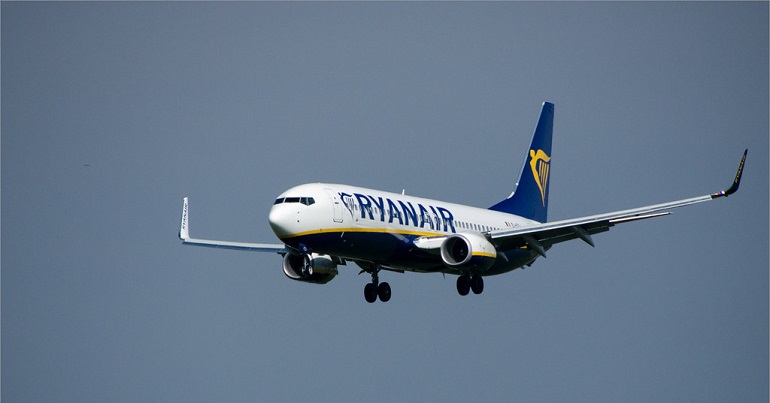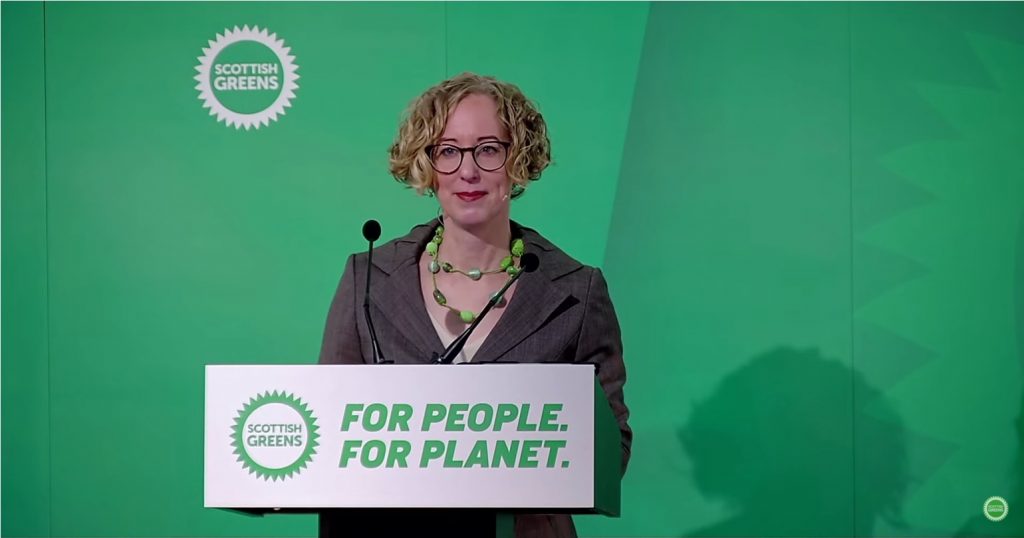The EU is subsidising Ryanair’s carbon emissions

As the number of people flying regularly continues to rise, CO2 emissions from aviation have soared, rising by 26.3% in the last five years in Europe. Last year, CO2 emissions from aviation grew by 3.9%, while emissions from all other European industries in the Emissions Trading System fell by 4.1%. This makes the aviation industry the largest source of CO2 emissions in Europe.
The low-cost carrier Ryanair is responsible for a significant chunk of these CO2 emissions, and earlier in 2019 the company joined the infamous club of Europe’s top 10 emitters, a club which until this year had been occupied exclusively by coal plants. Rising emissions are incompatible with meeting the European Union’s goal of reducing greenhouse gas emissions to help limit the impact of climate change.
However, analysis by Transport and Environment has shown that the European Union has not only allowed Ryanair’s emissions to continue rising, but it has actually encouraged it by subsidising many of Ryanair’s failing airports across the continent, facilitating the company’s rapidly rising CO2 emissions.
Transport and Environment’s report concludes that 52 of the low-cost carrier’s 214 airports across Europe are either documented to be receiving subsidies (35) or have fewer than 500,000 passengers per year (17), which is considered to be a conservative estimate of the threshold for profitability.
Andrew Murphy, aviation manager at T&E, said:
This report paints a clear picture of public money subsidising Ryanair’s operating costs and inflating its bumper earnings and record breaking emissions. With governments struggling to rein in the sector’s climate impact, the first step should be calling a halt to subsidies which are only adding more fuel to the fire.
Paris Vatry airport served just 108,000 passengers in 2017, but received 3 million Euros in public subsidies.
Transport and Environment’s estimate for the number of loss-making Ryanair airports in Europe is conservative. Airports with higher passenger numbers, like Charleroi in Belgium, are not included in the analysis but may still receive millions in taxpayer funded subsidies every year.
Andrew Murphy continued:
The European elections produced a consensus that much more needs to be done to cut aviation emissions. Ending state aid is a start but we also need to end aviation’s tax holiday and encourage the uptake of zero emission aviation fuels.
Urgent action is needed to reduce emissions across all sectors, but particularly in aviation. Encouraging consumers to fly less is vital, along with encouraging the industry to adopt less polluting fuels and technology. But it is equally important that the European Union and states elsewhere stop giving companies like Ryanair a free pass to continue emitting and causing irreparable damage to our planet.




Leave a Reply